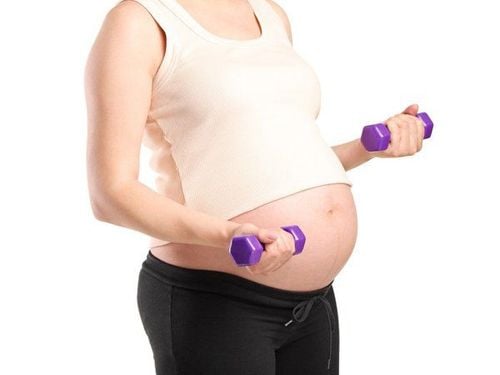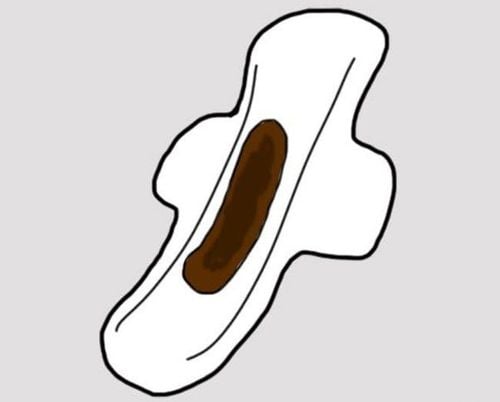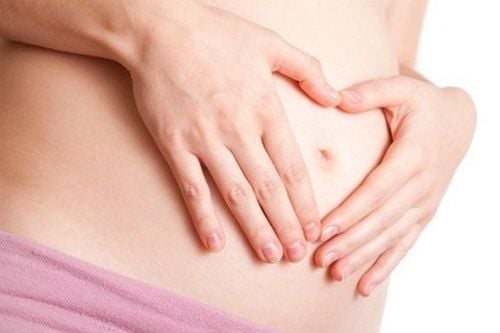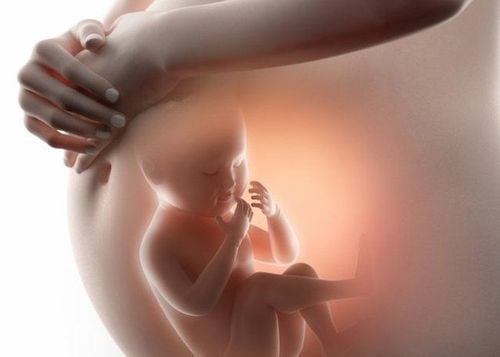This is an automatically translated article.
The article was professionally consulted by Doctor Department of Obstetrics and Gynecology, Vinmec Hai Phong International General Hospital.
35 weeks pregnant women often feel the need to urinate due to the change in position of the fetus, causing pressure on the bladder. Common symptoms in pregnant women at 35 weeks include: venous insufficiency, dermatitis, appearance of "false" labor contractions.
1. What's special about 35 weeks pregnant?
The uterus of the 35-week pregnant woman has grown quite large and is about 15 cm higher than the navel. At this time, the pregnant woman's weight has increased by 10-13 kg. During the routine antenatal check-up, the doctor will assign the pregnant woman a group B strep test between 35 and 37 weeks.
For a 35-week fetus, the lungs have developed almost completely. Fat layers under the skin continue to form to keep the baby warm, even after birth.
When pregnant women are 35 weeks pregnant, the possibility of early labor may occur. Therefore, pregnant women and their families should be fully equipped with knowledge about signs of labor to promptly handle emergency situations. Besides, it is advisable to prepare all the necessary items and equipment for the baby, such as baby clothes, baby car seat, baby carrier to help the mother get through the first few weeks. together with the “new member” in the family.
2. How does a 35-week pregnant woman's body change?
Pregnant women at 35 weeks often experience a constant feeling of needing to urinate. The reason is due to the change of the position of the fetus to prepare for the birth process, of which the most common is the first position. The baby's head in this week of pregnancy is towards the vulva, which puts pressure on the mother's bladder, causing the feeling of needing to urinate continuously throughout the day.
This phenomenon sometimes makes a 35-week pregnant woman unable to control the need to urinate, losing control of bladder muscles, leading to leaking urine every time she coughs, sneezes or even laughs. With this condition, pregnant women should not reduce water intake or take any measures to reduce urine output. Instead, do an exercise that strengthens muscles, like a Kegel exercise (which strengthens the pelvic muscles and prevents and corrects most incontinence cases, or Additional sanitary napkins can be used if necessary.
3. Common symptoms in pregnant women at 35 weeks pregnant
Headaches, dizziness Pregnant women at 35 weeks sometimes experience headaches, dizziness, and dizziness due to some reasons such as the body being too hot, or being in a room that is too stuffy, having difficulty breathing. To prevent this symptom, pregnant women should focus on resting, going out into open space, or opening a window for ventilation. In addition, pregnant women can use headache relievers suitable for pregnant women.

Varicose veins in the legs makes the legs of pregnant women swollen, painful, itchy, especially at the 35th week of pregnancy, when the fetus is large, causing great pressure on the legs, the condition of varicose veins is increasing. more serious. However, after giving birth, this condition will gradually improve.
Hemorrhoids Pregnant to 35 weeks, the pressure from the growing fetus is increasing, along with the increase in blood flow to the pelvic area, causing the veins in the rectal wall to dilate, swell, and swell. cause itching, even causing hemorrhoids for pregnant women who have been constipated for a long time.
To reduce this situation, pregnant women should avoid constipation by adding more fiber, drinking lots of water. In addition, changing positions, avoiding sitting in one place, bathing with warm water also helps pregnant women at 35 weeks to overcome hemorrhoids.
Pain and bleeding gums Gums can also become painful, red, sensitive and prone to bleeding during pregnancy, especially when the mother brushes or flosses vigorously. This phenomenon is considered normal and will completely resolve after birth. To promote oral health, pregnant women should supplement vitamin C through fruits, berries, and pay attention to adequate oral hygiene.
Dermatitis Dermatitis and skin irritation in pregnant women is a disease caused by hormonal changes during pregnancy. Typical of the disease is pruritic urticaria, also known as erythema multiforme, which occurs in 0.25 - 1% of pregnant women. The main way of treatment is to relieve symptoms with specific drugs prescribed by the doctor.
Forgetfulness Pregnant women who are 35 weeks pregnant often have amnesia due to the influence of many causes, including hormonal, emotional, psychological, physical,... However, this situation will improve. for several months after the birth of the baby.
"false" labor contractions Before the actual signs of labor take place, pregnant women at 35 weeks of pregnancy often experience "false" labor contractions, also known as Braxton Hicks contractions, with daily intensity. growing stronger and stronger. However, women who are pregnant for the first time may not notice these contractions.
4. Advice for pregnant women at 35 weeks

4.1. Mentally prepare ready 35 weeks pregnant means the due date is near. Therefore, pregnant women and their relatives need to prepare psychologically and have the necessary knowledge about signs of labor so that when an emergency situation occurs, the mother can be hospitalized in time.
4.2. Relieve heartburn Pregnant women in this week of pregnancy should sit up straight when eating, and try to keep this position for 1-2 hours after meals. Eat slowly, chew thoroughly, chew thoroughly, the process of digesting food takes place more easily, the stomach works less. In addition, pregnant women can chew sugar-free gum after eating to temporarily increase saliva, help neutralize stomach acid in the esophagus (but should not be abused, because eating too much sugar-free gum). may cause other problems with the digestive system). In addition, pregnant women need to limit the use of foods that are difficult to digest, greasy, spicy foods, carbonated drinks,...
4.3. Regular exercise When a mother exercises, the baby in the womb is also actively stimulated, through changes in heart rate, oxygen levels, as well as sounds and movements when the mother performs the exercises. gymnastics movements.
4.4. Learn first aid for babies Newborns are very sensitive to environmental influences. Therefore, knowing how to give first aid to a newborn baby will help the mother in case the baby encounters a critical condition that requires urgent emergency care.
4.5. Learn about pain relief methods during childbirth The growing medical industry has allowed pregnant women to access new services, helping to reduce pain during childbirth, even the mother may not feel any pain. What pain during the entire birth and still awake to be able to welcome the birth of your baby?
Currently, safe pain relief techniques, helping mothers to "have a painless birth" have been applied in maternity packages of Vinmec International General Hospital, in order to bring mothers the experience of giving birth no longer. pain.
Customers who are interested in painless delivery (epidural) at Vinmec can find out specifically in the maternity packages under the Maternity Care Program, or contact HERE for advice and support. aid.
Reference source: webmd.com













